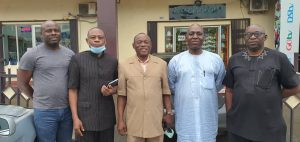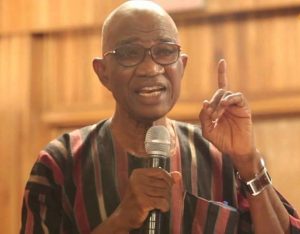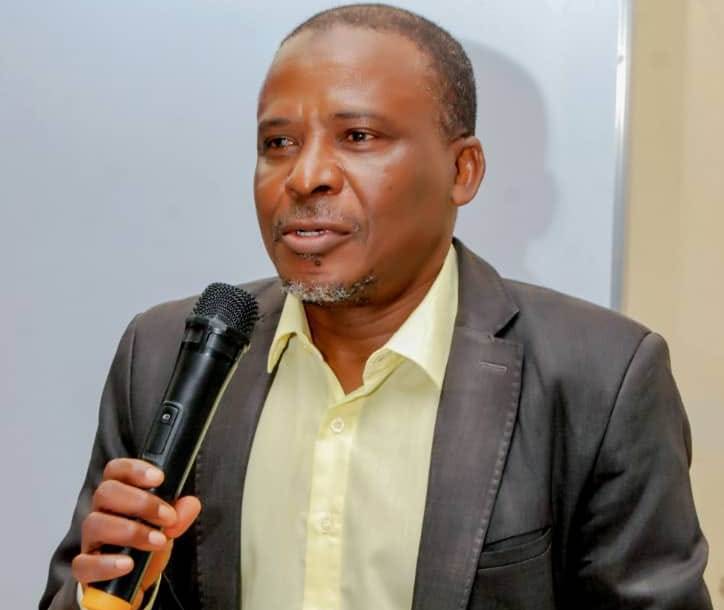Last week, it was the 60th birthday of Comrade John Odah. This week, it is the birthday of Yunusa Zakeri Y’au, the ex-academic turned civil society mandarin. The two are some of the stars of a generational cum ideological statement in Nigerian politics in the decade of the 1980s. There are very many others scattered in academia, the media, the bureaucracy, the politics, business and even diplomacy.
In the days before Fulanisation, there would be no differences between the two. If there was, it would be that while Odah was busy ‘causing trouble’ in UNIJOS, Ya’u was very busy doing the same in BUK. Causing trouble is the same thing as what arch Socialist, Comrade Ehi Eboigbe, would say is what qualifies members of the generation in question to be the right elements to always be in charge. There is always a problem wherever they are not, he would argue in those days. Although he was speaking in terms of the imperative of leadership of popular democratic fronts by a particular tendency, that argument of his is generalisable to the entire Nigeria.

The ‘celebrants’ with the ‘Tonowi’
History has worked out in such a way that his is now an even bigger claim. He meant/means that if YZ Ya’u were the Chairperson of INEC, for example, elections won’t be the wars they are now. The benefit of hindsight gives it to Eboigbe. What Prof Attahiru Jega did in INEC in 2015 confirms his point. Anyone can say whatever s/he wants about Jega but the technological fix he applied to the electoral field by way of the card reader is not what members of the ‘siddon look’ generation would have done. That it was revolutionary in context would be the verdict if Nigeria has not descended to a level where meaning and truth have become dangerously relativistic. Reaching that conclusion has nothing to do with whether one likes Jega as a person or not. It would have everything to do with painful admissions about the archetypal Nigerian politician, especially as done by Prof Maurice Iwu, the INEC Chairperson who conducted the controversial 2007 presidential polls.
Attahiru Jega is not a member of the generation we are talking about in the two current birthdays being put in perspective but he is a product of the same tendency or ideological stream of consciousness, broadly speaking. The only difference is that the Academic Staff Union of Universities, (ASUU) is where he was ‘causing trouble’, not in NANS where the generation which took over from the Segun Okeowo generation of radical student leadership was concentrated in the 1980s. That is the generation that became the first collective voice to say that something was not only going wrong with Nigeria but that that ‘something’ had to be fought. That is the generational and ideological statement in question. Before then, there hadn’t been a pan-Nigerian, multi-front and many sided testing of strength with authoritarianism.
In the case of Malam Ya’u, the most interesting aspect is that few are aware he actually read Electrical and Electronics Engineering. But, without abandoning the engineering training, he also mastered the social sciences well enough to fly at the same wavelength with the Sociologists, Geographers and Economists. He even writes poetry. It is not to be understood as a case of a brilliant Fulani boy. It is to be understood as a reflection of the state of the universities in those days that it gave everyone rounded enough education to fly at whatever wavelengths. That contrasts with the messy situation today whereby undergraduates stuff so much of Logic, General Studies, Nigerian Culture and all such courses and yet come out totally unschooled.

Prof Olorode
Talking about YZ Ya’u in that regard must bring to mind the late Prof Otas Ukpomnwan. He was a Professor of Pharmacy at Obafemi Awolowo University, Ile-Ife where he studied Pharmacy, took a graduate degree in Biology before tidying up with Physiology at Erasmus University in the Netherland, a world class university. In the end, he came back as a world leading expert in Sleep research, with deep knowledge of esoteric sciences. But, as long as he was alive, it was difficult to find someone who had read and digested Frantz Fanon’s The Wretched of the Earth as he had done. He was a reason for the daily round to the Staff Club at OAU then because he had a way of bringing up a different angle to Fanon’s classic. Yet, he was in Pharmacy, not in Political Theory or Political Sociology.
That is why Dr. Chijioke Uwasomba of OAU would say today that Prof Otas was a fantastic researcher, an exemplar of the intellectual as opposed to the intellectual worker. The intellectual worker is the self-contained professor or PhD holder just doing his work, celebrating his or her ‘specialisation’ while the intellectuals are the ones reading beyond their narrow specialisation and discipline and being very qualitative in mind. And he would go on to challenge anyone who can give him a rival to Prof Toye Olorode in Political Economy. Yet, Olorode was a Professor of Plant Science rather than Political Science. The point is that this was how the universities were in those days as to be able to produce those celebrating their generational turn now.
It raises the question of whether the universities can be rebuilt. To answer this sort of question is to ask why the universities were scattered and by whom. That process was as local as it was global.
So, they can be rebuilt but there are questions. Can the universities be rebuilt outside of the remaking of the entire Nigeria? Have the forces that wrote Nigeria into incoherence had a change of mind as to allow the rebuilding? Or have the local elite become knowledgeable of such forces and are ready to stand up to them?
There is no evidence that Nigerians know what is holding them down. There are many of the members of the elite who know why Nigeria is where it still is. There are many others who know but have water in their mouth. There are millions who have no idea of the trouble with Nigeria beyond North-South dichotomy or Islam and Christianity. Majority of the people have no idea while a substantial number simply cannot be bothered because they are battling with survival. So, who gets them to know and how can they know in the absence of liberatory education?
Let’s just say ‘happy birthday’ to all celebrants at a time of national political ill-health compounded by global public health crisis and aggravated by paralysis in critical action.




























